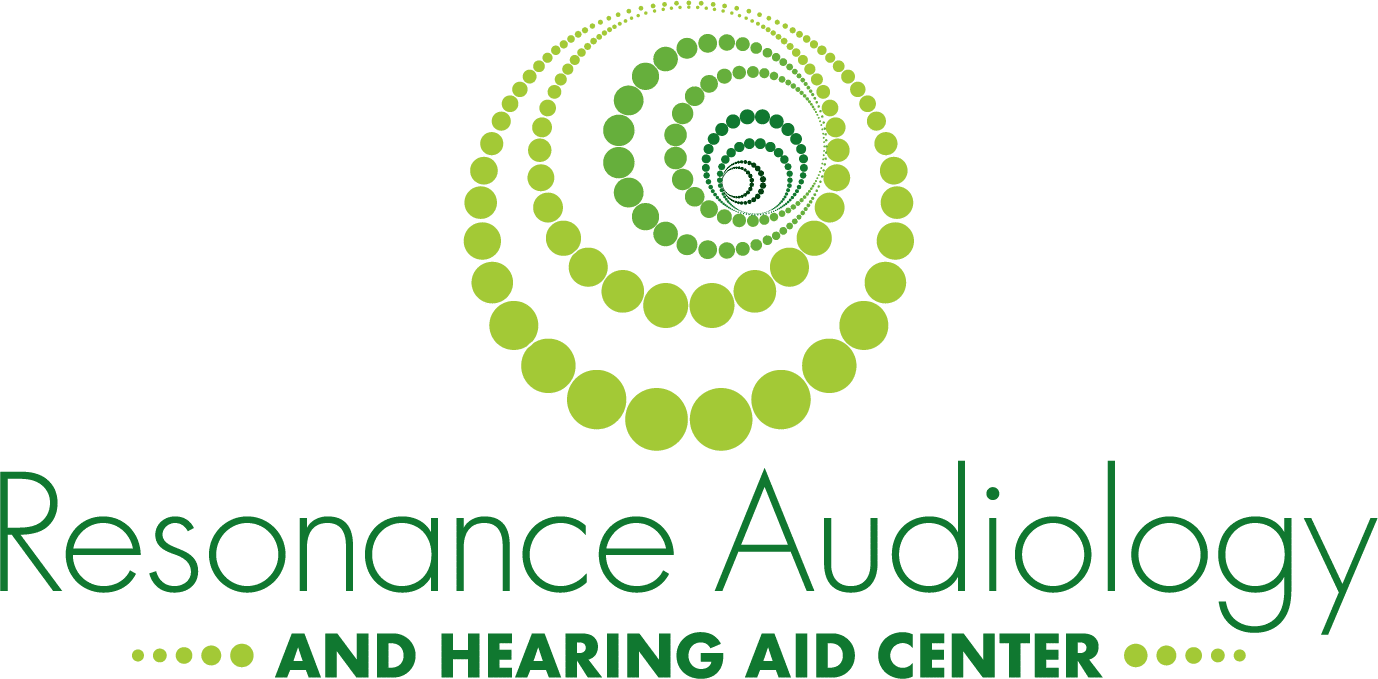How to Talk to A Loved One About Hearing Loss
Hearing loss is a very personal and delicate topic for most people, and for many, not a conversation they readily want to have. Actually, it’s not uncommon for people to go through denial, followed by a prolonged grieving process about their hearing loss.
At Resonance Audiology & Hearing Aid Center, as hearing care experts and enthusiasts, we are committed to educating people on identifying and treating hearing loss and offering tips on how to best support those around you who may be experiencing it.
While it can be hard to accept and talk about, seeing your loved one struggle with hearing loss and how it’s affecting their life naturally makes you want to help – and it starts with having a conversation.

Here are some mindful ways to talk to a loved one who is suffering from hearing loss:
Since this is an important conversation to have, it’s best to plan for it, and have it at the time and in the environment you know there won’t be distractions and interruptions. It’s always a good idea to choose a private, comfortable, and quiet place to talk.
Be prepared that this is probably not a conversation your loved one will want to have – approach the subject in a sensitive way and do your best to avoid upsetting your loved one.
Begin by creating awareness about the ailment and having conversations about symptoms and solutions, they can become more comfortable with what is going on and what needs to happen. This is vital. To have a successful and compassionate conversation with someone you love who has hearing loss, it’s important to come from that place of love, rather than a place of frustration. For example, often times it’s tempting to say “You know, you really need to have your hearing checked,” when a loved one has asked you to repeat yourself too many times. But this can cause someone to be defensive, feel attacked and resent your future offers of help. Instead, handle the frustrating times with grace and plan a calm, loving conversation.
ASSUME THEY KNOW
Oftentimes, people with untreated hearing loss do know deep down that they are having trouble hearing and need to seek treatment. The conversation might run more smoothly if you assume this. It’s less likely that someone will be completely shocked that you have noticed he or she has hearing loss, so knowing this should give you courage to have the conversation. Surveys show that people are more likely to seek treatment when someone they love is affected by their hearing loss. A good conversation starter is, “I noticed recently that you have had the TV on very loud, and I’m wondering if you might be having trouble hearing.”
BE EMPATHETIC
Being empathic means you listen to your loved one’s concerns. Avoid cutting him or her off, and let your loved one do most of the talking if he or she is up for it. Express that you understand your loved one’s fears and concerns and do your best not to counter it with a “but” – for example, “I understand you’re concerned about looking old with hearing aids but…” Instead, it’s important to start the conversation by letting your empathy and concern stand alone before offering your opinions.
OFFER YOUR SUPPORT AND THEN FOLLOW THROUGH
Your loved one may be nervous about seeking treatment. Offer to go to the audiologist appointment with him or her. You can ask questions, take notes and be a great source of emotional support in a time that is tough for many people.
Ask them about what instances cause them the most trouble: Talking on the telephone, watching television, how their hearing fairs when there is background noise. Allowing them to realize on their own that hearing loss is affecting various aspects of their life can be very motivating.
The first time you have a conversation with a loved one about hearing loss, chances are they will not immediately respond by seeing a hearing practitioner. They may be experiencing denial or believe that their issue does not require attention.
Look at them when you talk. Almost all impaired people read lips, intuitively even if they’ve never been taught. Don’t lean into their ear when you talk—they need to see your lips. Make sure you have their full attention. A hearing-impaired person has a lot more trouble multitasking when it involves hearing.
Speak in a normal voice and articulate as clearly as possible.
Use the word ‘I.’ If you are referring to ‘their’ problem, it can come off as distressing and it increases the chance that someone will shut down and refuse help. Have a conversation with your loved one about how the issue is affecting you and other family members, but do this in a way that won’t cause them to become defensive. For example, show your concern about them enjoying a child or grandchild’s company before they get too old.
CREATE POSITIVITY
Many people have negative feelings toward hearing aids, but you can create awareness and bring positivity to the situation. For example, you can tell a story about a close friend, relative or coworker who has had a great experience with hearing aids. Better yet, ask that individual to have a conversation with your loved one that is suffering.
Being able to hear well has been shown to decrease dementia and brain atrophy and relieve symptoms of depression and isolation. Talk to your loved ones about the things they will gain with help from a hearing device.
ENCOURAGE THEM TO BE PROACTIVE
During your conversation with a loved one about hearing loss, talk about all the things he or she can enjoy to the fullest with the help of hearing aids. Discuss hearing nutrition, new technologies and community-oriented engagement with your loved one as well. The more they learn about hearing aids, the more comfortable they may be with seeing a hearing aid professional.
HIGH—PITCHED VOICES SOUND MUFFLED OR UNCLEAR
The cells in the inner ear that help you hear and detect high-pitched sounds are usually the first to go. As a result, it may be more difficult to understand anyone with a high-pitched voice, like children and women, as well as something like a beep of a microwave or the chirping of the birds.
DIFFICULTY FOLLOWING CONVERSATIONS IN NOISY PLACES
With age, changes in hearing and, specifically, in how the brain processes sound can also make it harder to deal with background noise. If one has trouble hearing the high tones, it will be easier to hear the noise than the conversation of people around. The background noise at malls, restaurants, etc. is regarded as low-pitched; many letters used in speech, such as “f” and “s,” are considered high-pitched.
FEELING EXHAUSTED AFTER SOCIAL EVENTS
When one cannot hear all the sounds, his or her brain needs to fill in the gaps to make sense of what’s being said, especially when there’s more than one person speaking at a time. This takes a great deal of focus and effort, and may make a person feel exhausted after being in social settings.
WATCHING PEOPLE’S LIPS INSTEAD OF MAKING EYE CONTACT
When sense of hearing stops working as well, the brain tries to compensate with using more of the eyesight. People having trouble hearing often start to watch the speaker’s mouth rather than look into their eyes – they can “see” the sounds even if they can’t hear them.
EARS FEEL CLOGGED
If a doctor finds your ears to be clear from wax or fluid, and your ears still feel clogged, it’s a good idea to get a hearing test – age-related hearing loss can make sounds seem dull or muffled.
TV VOLUME GETS TURNED UP AGAIN AND AGAIN
If a person hears bass tones better than high tones on TV, the music and effects can muffle parts of the speech, and in order to understand what the characters are saying, the volume may need to be increased. If others are continuously complaining that the TV is too loud, it’s time to check your hearing. The same can be said for listening to the radio – when one starts experiencing hearing loss, he or she will keeping the radio at a high volume.
Other signs of hearing loss include difficulty understanding on the telephone, requiring frequent repetition, feeling that others seem to be mumbling, ringing in the ears, and responding inappropriately to conversational questions.
If any of this sound like you, or someone you know, talk to your doctor or an audiologist – professionally fit hearing aids could ease the strain.
If left untreated, hearing loss can lead to a myriad of problems, such as emotional, psychological and social. Hearing loss can make it very challenging, even impossible, to engage in conversations with family and friends, leading to frustration and feelings of isolation, as well as a lot of distress due to not being able understand and follow doctors’ advice, respond to alarms and warnings, and hear phones, doorbells, and vehicle horns.
While it may seem obvious to seek medical attention for hearing loss, many people wait years before getting hearing aids.
For comprehensive hearing evaluations & exams and hearing aid evaluations, go to:
At Resonance Audiology, the hearing aid fitting appointment is where you receive your hearing aid(s) and are appropriately “fit” with the hearing aids through very specific computer software programs that match your hearing loss to a first fit algorithm in the hearing aid we choose for you.
If you feel you or a loved one is suffering from hearing loss, the best place to start is a licensed audiologist, such as Dr. Zoe Horan. Contact us today at our audiology office in New Holland, or Lancaster, PA and learn more about hearing loss and superior hearing aid solutions.
